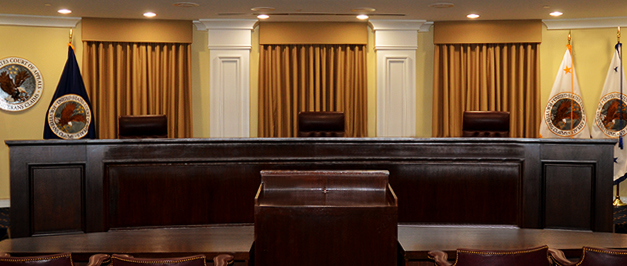 Start today. Your Department of Veterans Affairs (VA) benefits payments accrue from the day you file, no matter how long it takes to get the claim settled. However, they don’t accrue from the day before you filed. If you wait months or years to initiate your claim, those months or years are pure lost money.
Start today. Your Department of Veterans Affairs (VA) benefits payments accrue from the day you file, no matter how long it takes to get the claim settled. However, they don’t accrue from the day before you filed. If you wait months or years to initiate your claim, those months or years are pure lost money.
Meeting with a VA-accredited attorney is one way to ensure your claims are submitted properly. Completing VA’s forms accurately and correctly affects the outcome of your request. You benefit from the counsel and guidance of an expert who understands not only VA but also the laws governing VA’s actions.
Another reason to start today is VA’s well-known backlog. Here’s an example of why obtaining counsel now can serve you very well.
Docket No. 10-27 811 (A real case heard by the Court of Appeals for Veterans Claims (CAVC)). Here are the facts:
- Veteran served on active duty from January 1956 to June 1959.
- VA’s St. Petersburg, Florida Regional Office (RO) denied Veteran’s claims twice – in February 2008 and June 2008.
- In November 2013, VA’s Board of Veterans Appeals (Board) upheld the RO’s denials.
- Veteran appealed to the CAVC. The CAVC issued its opinion on July 24, 2015.
- The CAVC essentially said the Board and RO were wrong and need to reconsider the refusals.
- The CAVC found the Board relied on inadequate medical opinions in denying the claims for service connection for Veteran’s left shoulder, secondary cervical spine, and secondary lumbar spine disabilities.
- Specifically, VA’s April 2013 medical opinion failed to consider the severity of the Veteran’s “in-service left shoulder condition.
- The CAVC also chided VA for the examiner’s failure to “adequately explain her rationale that ‘aging/occupational/activity factors’ are more likely the cause” of the Veteran’s left shoulder and spinal disabilities.
- The CAVC also noted the examination report lacked any discussion of specific occupational or activity factors to which the examiner attributed the Veteran’s condition. Further, the examination report lacked discussion of how the VA examiner weighed the aging factor.
What happens next? Following the CAVC’s guidance, the examiner needs to explain herself. Then, the Agency of Original Jurisdiction (AOJ) has to adjudicate the issues of entitlement to service connection for a left-shoulder disability and secondary service connection for cervical and lumbar spine disabilities. If any benefit sought by the Veteran still remains after the AOJ’s decision, the case goes back to the Board…and then back to the CAVC if issues still remain.
Thoughts:
- Appealing is a marathon. Maybe an ultramarathon.
- From the time the Veteran filed the original claim it took VA until 2008 to issue a decision. When it did, the decision was, um, pretty sloppy.
- Once the Veteran appealed the RO decision, it took another five years for the Board to make its decision.
- The CAVC was faster, issuing its decision in July 2015, less than two years from the date of the Board’s decision.
- The case isn’t over.
- It may take 10 years or more for this whole claims case to be resolved for the Veteran.
- Only about 12% of all VA claims decisions are appealed at all.
- An even smaller percentage – around 5% – are appealed to the Board. By the way, the Board is part of VA. It’s not a completely independent court of appeals.
- A fraction of all claims then go to the CAVC.
If you hang in there, your chances of ultimately prevailing on appeal are good. Given the sloppy examination VA applies, it’s clear VA counts on the historically low appeal rate to cover its tracks. In the case cited above, just one of many, the CAVC judge – in a nice way – expressed absolute horror at the VA examiner’s complete lack of any evidence to justify her dismissal. If the CAVC judge weren’t the consummate professional, he might have said to VA’s examiner “You just made stuff up!” Unfortunately, only a Veteran’s credibility is ever on the line: never VA’s.
You can see why you need to start your claims now. You can also see why having an attorney advocate is important. And, having an advocate who is a Veteran, who is sympathetic to your case, and who represents your issues is a solid combination.
As a Veteran with advanced degrees in both Health Law and Intellectual Property & Information Law, Robert B. Goss has created legal team dedicated to supporting and representing U.S. Veterans and their families. Don’t wait until it’s too late: Contact the Law Office of Robert B. Goss, P.C. today!
 Military Veterans' Lawyer Blog
Military Veterans' Lawyer Blog

